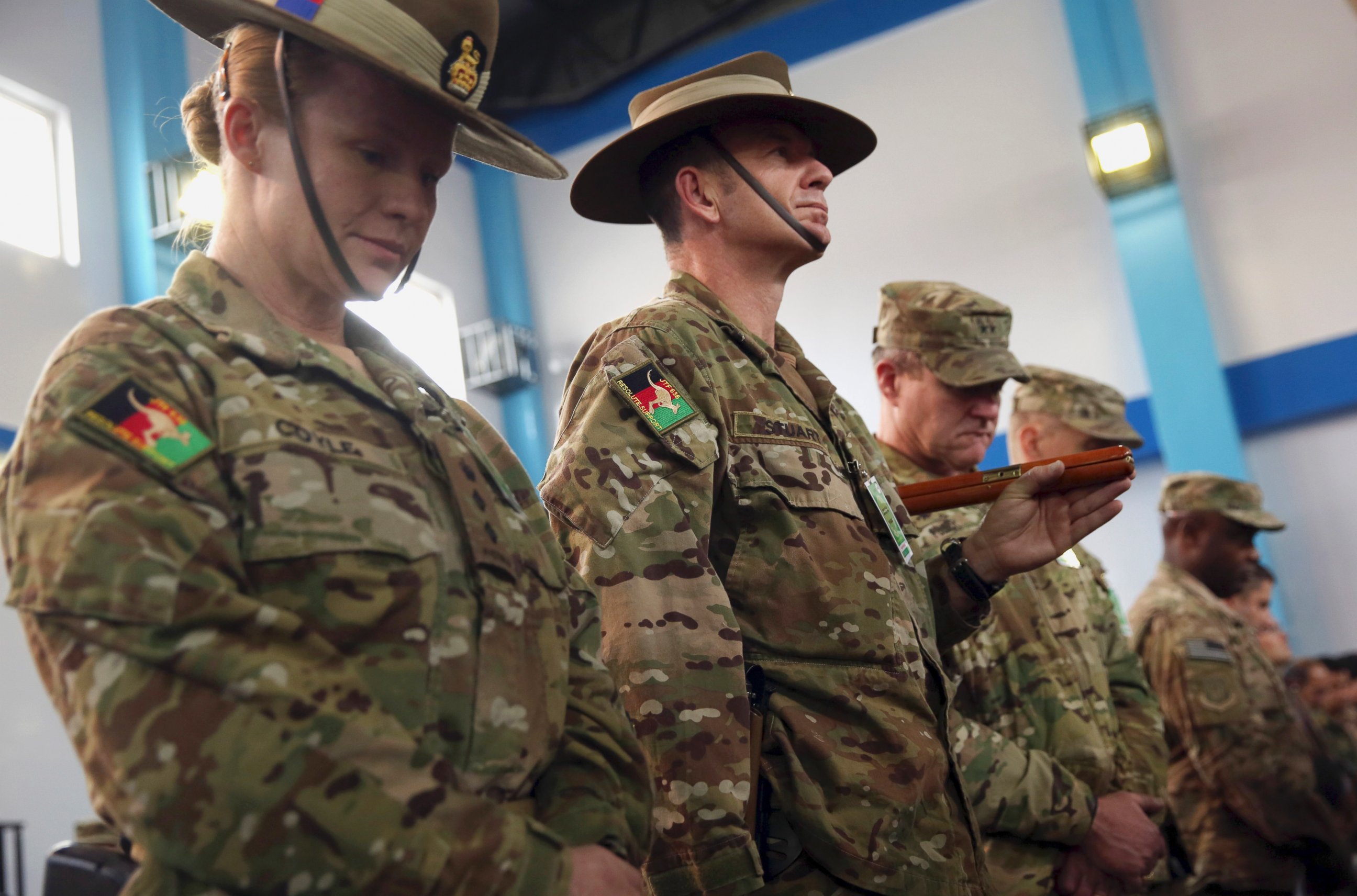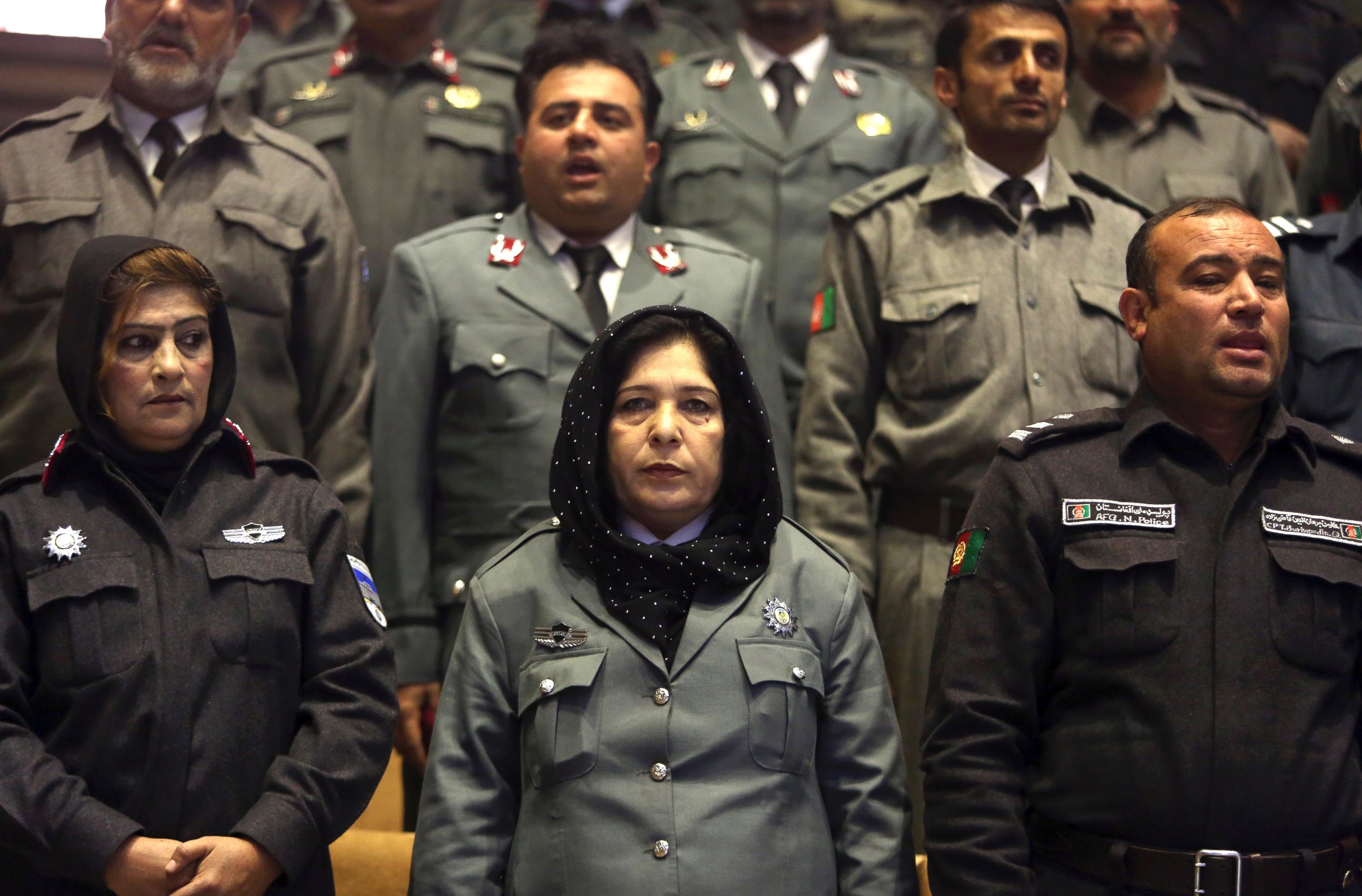War or No War, Winning in Afghanistan 'a Matter of Political Will'
Allies may have declared the war over, but the fight goes on.
— -- "It's all a matter of political will."
I met the man who whispered those words to me -- let's call him Tom -- in Kuwait during the first Gulf War. I suspected he was CIA but never asked.
Then in Marja, Afghanistan, in 2010, when I was following the U.S. Ambassador to Afghanistan, Karl Eikenberry, as he took a tour, I was surprised to see Tom outside a small tent. The Marines had just won a hard fought battle here. The surge had just started. Thousands of troops were flooding into Afghanistan.
I didn't stop to say hello to Tom and he didn't acknowledge me. But as I followed the carefully orchestrated media tour he evidently snuck up behind me. He leaned in and whispered those seven words, "It's all a matter of political will."
I turned toward him and he was gone -- just like we were in a spy movie or cartoon -- there he was and then he wasn't.
At the time I thought he was referring to the Afghan government. The Marines were trying to get a new force, the Afghan National Civil Order Police (ANCOP), to take over in Marja.
I've been thinking about that meeting -- or non-meeting -- the past few days. I think CIA Tom was referring to us, not the Afghans and not the U.S. -- but us. You and me.
The United States ended combat operations in Afghanistan last week. There was the usual flag lowering handover ceremony in Kabul. A few words, handshakes and it was done. The Afghans take over. Virtually no network news coverage and very little from my print colleagues either. Few noticed or even marked the end of America's longest war. Maybe it's because most of us didn't feel it -- we borrowed to finance the war and only 1 percent of us actually fight.

But there's probably a better reason the "end of combat" slipped past us over the weekend--we've heard it before.
In September 2010, the U.S. ended combat operations in Iraq—the other war. Much was made of the event but thousands of military advisors and "trainers" remained to train and assist the Iraqi defense forces.
Over two years after the end of combat operations in Iraq the last US soldier crossed into Kuwait. We are back, of course, and on schedule for the return of a few thousand trainers and advisors. So the end of combat operations wasn't even the beginning of the end. It was just a marker along a road that never seems to end.
The new U.S. commitment to the training mission in Afghanistan, other than money, is about 10,800 soldiers, Marines, Sailors, and Airmen. That doesn't include private contractors. Our NATO allies are kicking in another 2,500 or so to help. It may not be enough.
The Afghan Army and police are losing people faster than they can be replaced.
"They (the Pentagon) have their talking points (about Afghan Defense forces) --it's crap. The Afghans are getting killed out there—especially the police," a long serving U.S. diplomat told me recently.

U.S. military officials concede that al Qaeda is on the rise, again, in a few provinces in Afghanistan. The Afghan military doesn't have the artillery or air support they say they need to go on the offensive. And, although combat operations may have ended, the U.S. has a significant Special Operations Force in country for "counter-terrorist" operations. I'm sure the semantics don't mean much for those "door kickers" (special operations troops). They will certainly be involved in combat.
Afghanistan could turn out like Iraq, or not. Negotiations with the Taliban could be successful next year, or not. The end, in whatever form it comes, depends on political will.
What price are we willing to pay and for how long?
It's a tough question that requires our attention, but ignoring a war -- combat or not -- is not an option.



